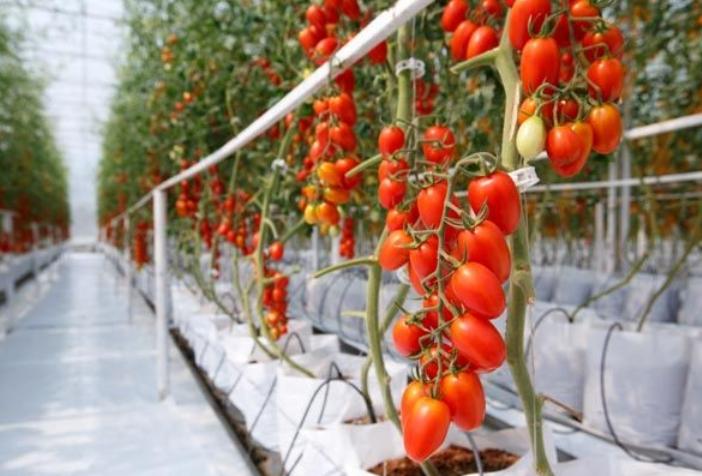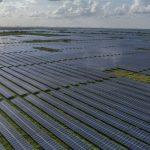After shortages of eggs, tomatoes and pears could run out: hit by soaring costs, the United Kingdom is heading straight for a food supply crisis, its main union warned agricultural.
Ultimately, “the danger is that we will produce ever less of our food here and that we will increasingly depend on imports”, affirmed, during a press conference in London, Minette Batters, president of the NFU (National Farmers’ Union), adding that the country had notably “relyed too much on Spain in the past”.
Declining production
UK farmers are in ‘an emergency’ according to the union, hit by soaring costs for fertiliser, feed, fuel and energy as linked supply chains are disrupted to the pandemic and the war in Ukraine.
Eggs have already become more rare and expensive, because of these additional costs, to which has been added a local epidemic of avian flu. Many British supermarkets are reduced to rationing them.
And crops in greenhouses, such as tomatoes, cucumbers, lettuces or celery, which consume a lot of energy, are particularly affected. Some will see their lowest production levels this year since 1985, when statistics on the subject began.
Share cost risk
Faced with this situation, it is necessary to share the risks related to costs with the intermediary companies, in particular responsible for packaging or distributors, according to the union, which calls for “more equity” in the supply chain.
The NFU says there are 7,000 fewer agricultural businesses in the country than in 2019 – a drop of almost 5% – while nitrogen fertilizers for example have increased by 240% and wholesale gas has increased. experienced a massive 650% increase over this three-year period.
Brexit singled out
But beyond the issues of costs, which are soaring all over the world, farmers across the Channel are also suffering from the consequences of Brexit, which has complicated the hiring of European workers on whom the sector relied.
The NFU is calling on the government to grant more seasonal worker visas, as some growers have seen some of their crops rot on the vine this year for lack of hands to harvest them.

The British government had extended, last December, until the end of 2024 the possibility of using foreign seasonal agricultural workers – with a total of 40,000 visas in 2022.
Too little, according to the NFU: “we want 55,000 seasonal workers (per year) over a continuous period of five years”, hammered Minette Batters.
The impact of climate change
The NFU also criticized on Tuesday the Conservative government’s desire to sign all-out trade agreements since Brexit, such as with Australia and New Zealand, which expose British farmers to increased competition.
In the UK, as elsewhere on the planet, food production is further challenged by climate change and biodiversity loss.
The UK Office for National Statistics (ONS) has pointed out that only a handful of companies in the UK monitor their impact on nature and biodiversity – figures which do not include agricultural businesses, however.
But the United Kingdom has “a high degree of food security,” the government said, ensuring that it is in contact with the sectors concerned “to ensure that they are well prepared for a whole range of scenarios”.
Food and Agriculture Minister Mark Spencer was due to meet representatives of egg producers.
“The UK has an extensive and highly resilient food supply chain” which relies on “strong domestic production as well as imports via stable trade routes”, the executive added.










